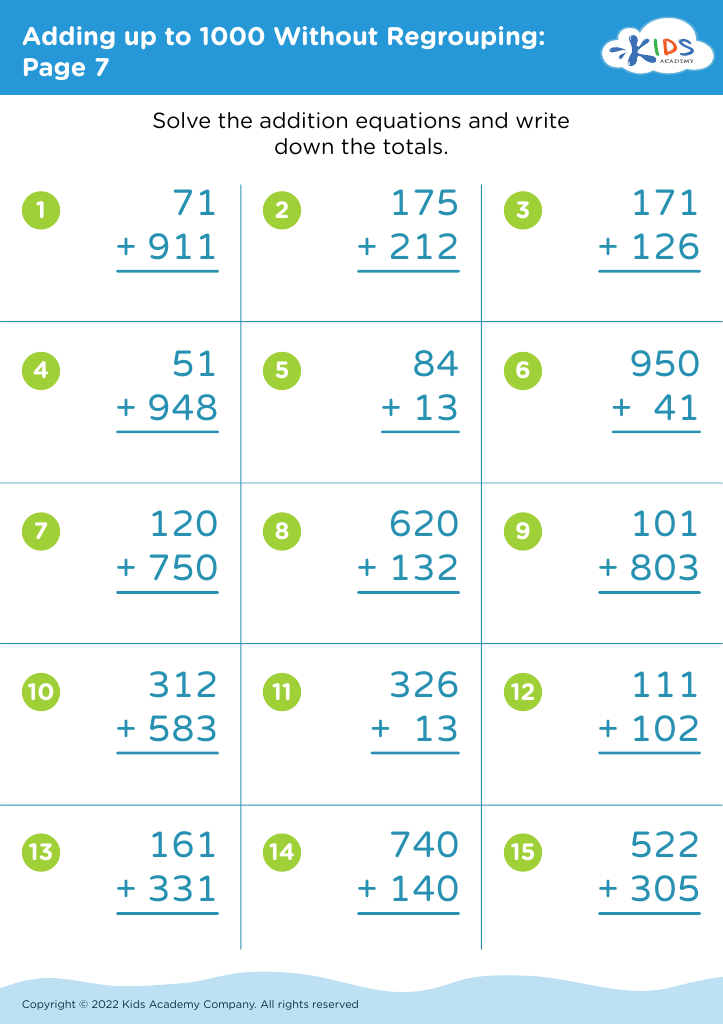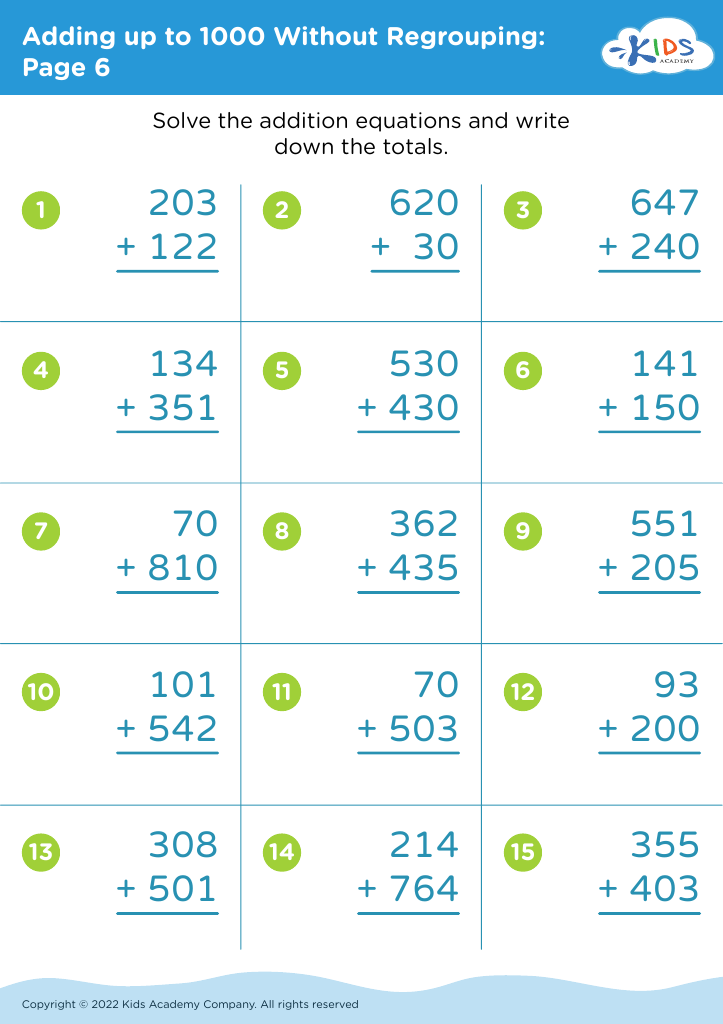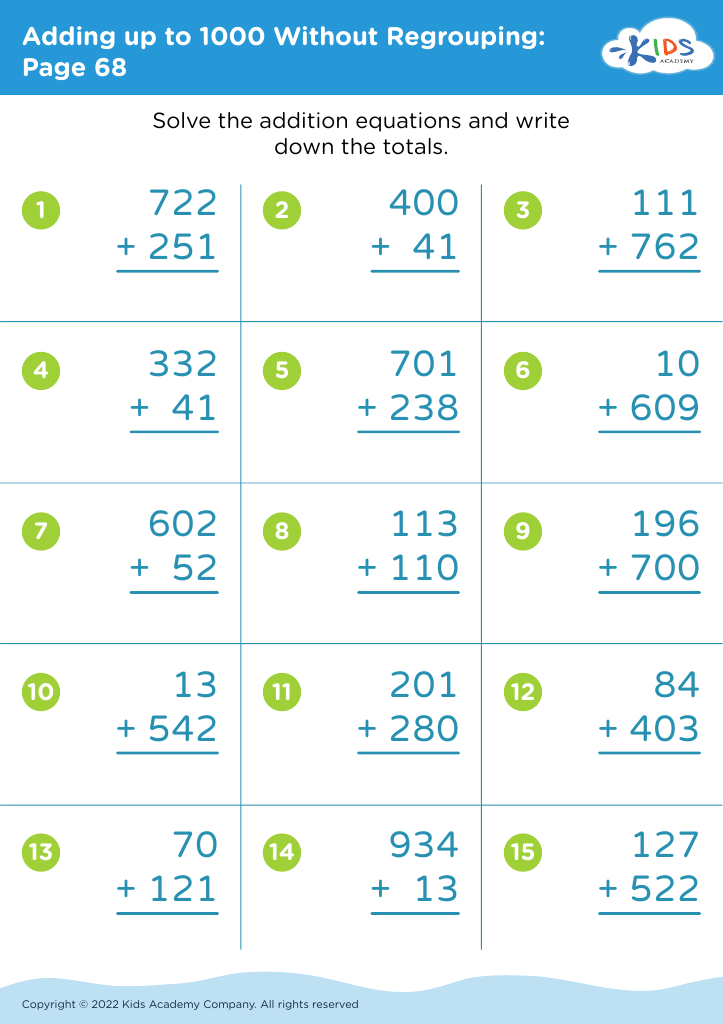Improving counting skills Adding up to 1000 Worksheets for Ages 7-9
4 filtered results
-
From - To
Enhance your child's counting skills with our comprehensive "Adding Up to 1000 Worksheets" designed for ages 7-9. These engaging and interactive worksheets provide a fun way for kids to practice addition and develop confidence in their numeracy abilities. Through a variety of exercises, children will learn to count accurately, recognize number patterns, and tackle problems involving sums up to 1000. Perfect for both classroom use and home study, these worksheets align with educational standards to support learning objectives. Equip your child with the essential counting skills needed for future math success—download our resources today and watch them thrive!
Improving counting skills, particularly for numbers up to 1000, is crucial for children aged 7-9 as it lays the foundation for mathematical understanding and problem-solving abilities. At this age, children transition from basic arithmetic to more complex concepts such as addition, subtraction, and eventually multiplication and division. Mastery of counting to 1000 enables students to develop number sense, which helps them understand the value of numbers, recognize patterns, and grasp larger quantities.
Counting skills also support critical thinking and develop cognitive abilities essential for everyday situations, including budgeting, measuring, and time management. Furthermore, strong counting skills boost confidence in math, as children experience a sense of achievement when able to perform tasks independently.
For parents and teachers, fostering these counting skills encourages not only academic success but also a positive attitude toward learning. Engaging students through games, activities, and real-life applications can make counting enjoyable and relevant while promoting teamwork and communication. By prioritizing counting skills, caregivers can provide children with the necessary tools to thrive mathematically and develop a lifelong love for learning. This investment in foundational skills prepares them well for future educational challenges and opportunities.



















